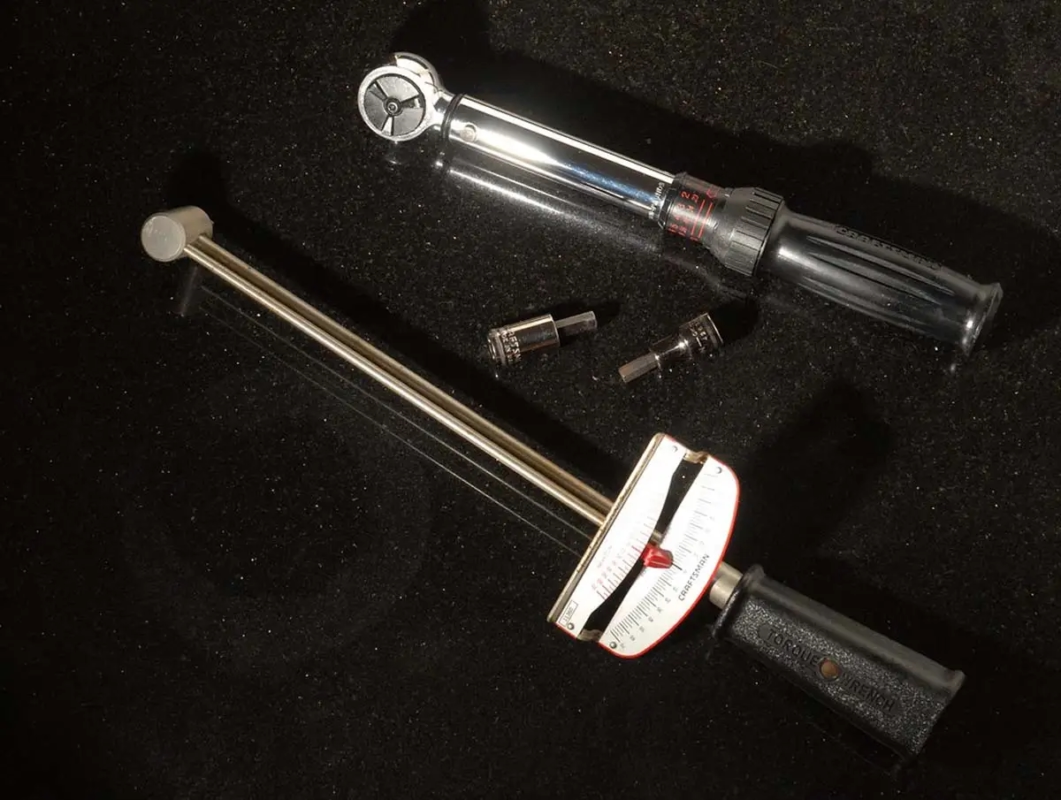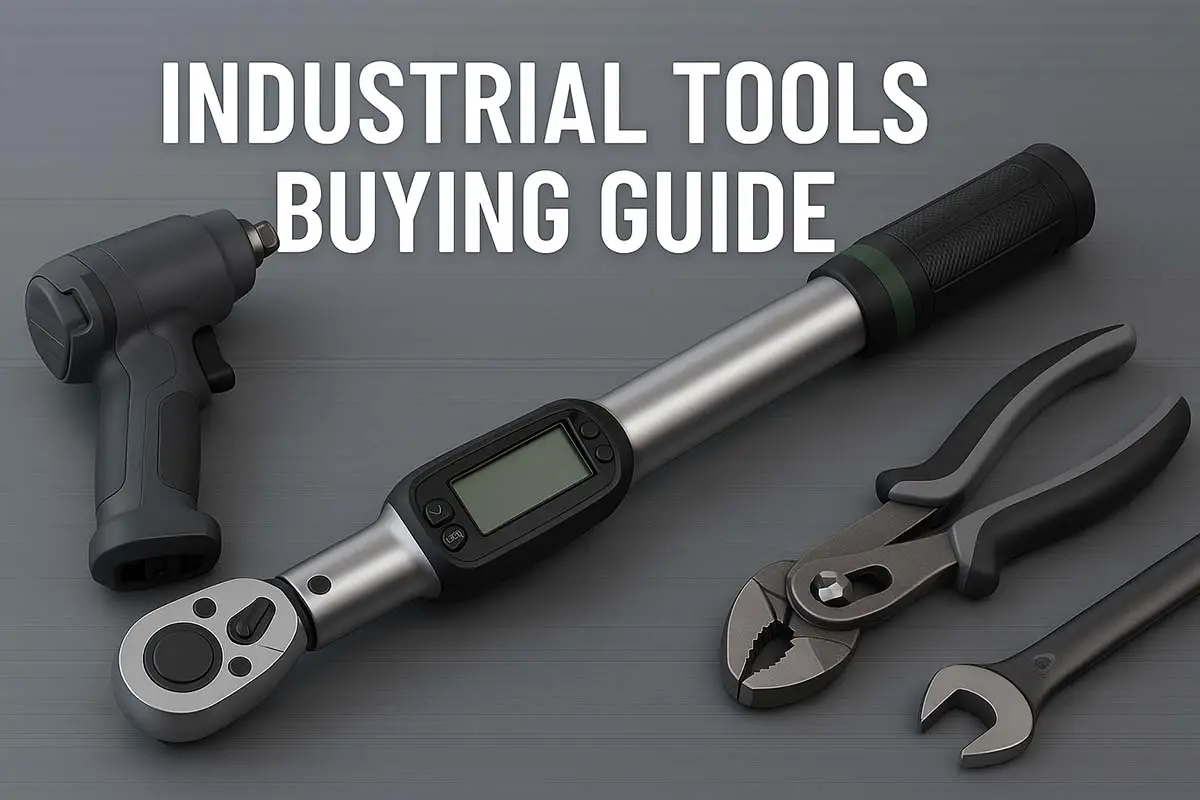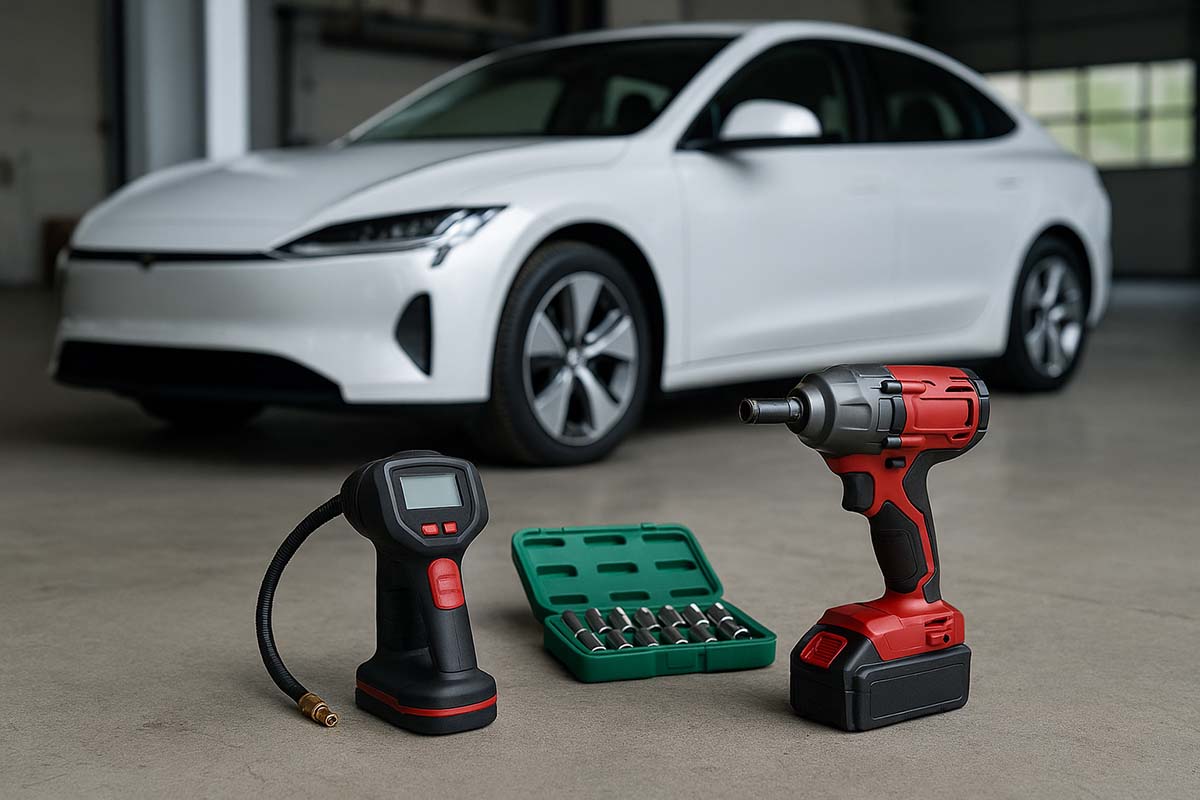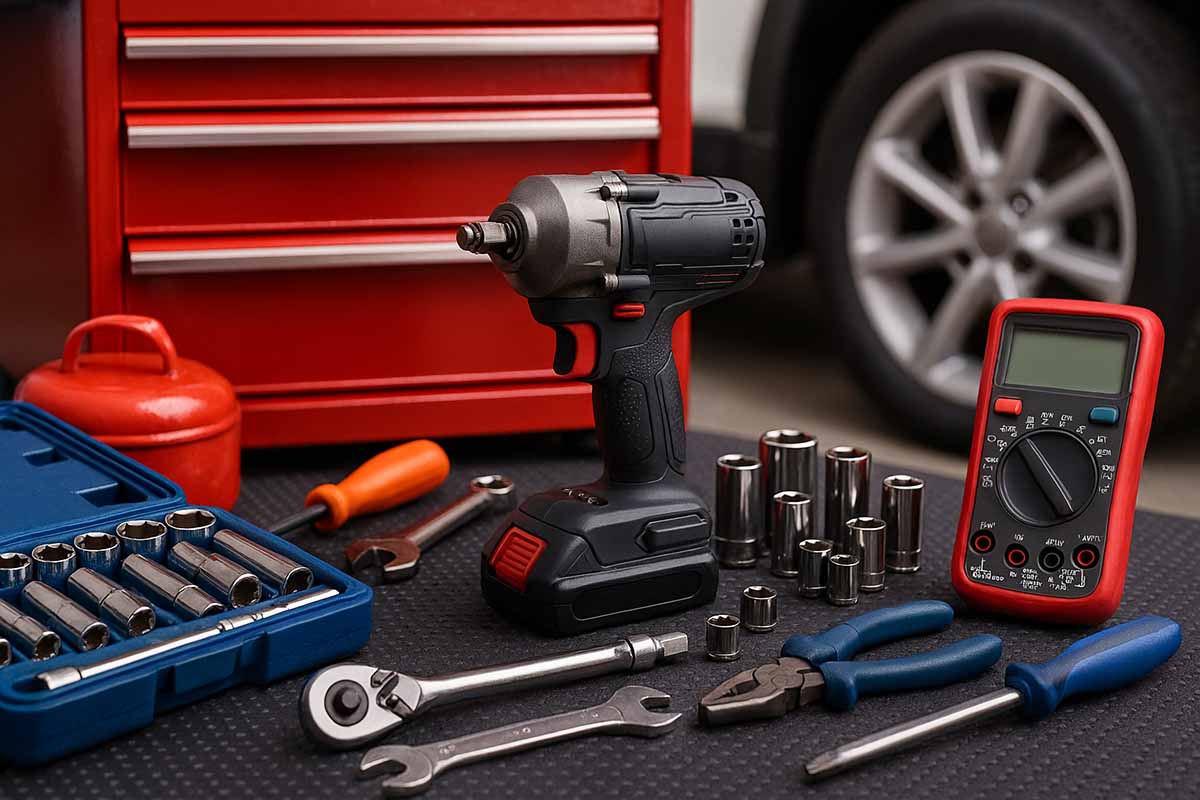Why Proper Torque Matters in Automotive Work
In the automotive world, tightening isn’t just about strength – it’s about precision. Too loose, and parts can rattle free. Too tight, and you risk stripping threads or warping components. That’s where the torque wrench comes in: a tool designed to apply exact force to nuts and bolts, ensuring both safety and reliability.
Step-by-Step: How to Use a Torque Wrench
1. Choose the Right Torque Wrench
- For wheel lug nuts, a ½” drive wrench is best.
- For engine components like spark plugs, a ⅜” or ¼” may be more suitable.
2. Set the Correct Torque Value
- Check your vehicle’s service manual for specifications.
- Rotate the handle (digital or click type) to the desired setting.
- For digital models, input the value directly on the display.
3. Attach the Correct Socket
- Match the drive size (¼”, ⅜”, ½”) with the socket.
- Ensure the socket is securely locked in place.
4. Position the Wrench
- Place the socket squarely on the fastener.
- Grip the handle firmly, using steady pressure.
5. Apply Torque Smoothly
- Turn the wrench slowly until you hear the “click” (click-type) or the display indicates you’ve reached the torque (digital).
- Stop immediately once the target torque is reached – never keep pulling.
6. Reset the Wrench After Use
- For click-type models, return the setting to the lowest torque.
- This protects the internal spring and ensures long-term accuracy.
Pro Tips for Using a Torque Wrench in Automotive Work
- Calibrate Regularly: At least once a year or every 5,000 uses.
- Avoid Using as a Breaker Bar: Torque wrenches are for tightening, not loosening stubborn bolts.
- Store Properly: Keep in a protective case, away from moisture and dirt.
- Warm Hands, Better Accuracy: Cold hands can affect grip and pressure—believe it or not, even mechanics get better accuracy when their hands are warm!
- Use Both Hands for Heavy Torque: For high-torque applications, use both hands to keep pressure even.
Common Mistakes to Avoid
❌ Using the wrench without checking torque specifications
❌ Continuing to apply pressure after the “click”
❌ Storing the wrench set at high torque
❌ Dropping the wrench (a sure way to ruin calibration)
❌ Ignoring re-calibration needs
How to Use a Torque Wrench in the Automotive Industry FAQ
Interesting & Lesser-Known Fact
- Interesting Fact: In professional automotive factories, torque wrenches are connected to digital monitoring systems that log every single bolt tightened for quality assurance.
- Lesser-Known Fact: Torque specifications can differ not only by car model but even by wheel rim type – using aftermarket wheels without checking torque specs is one of the most common mistakes car owners make.
Want To Learn More About Torque Wrench?
Find out more information on torque wrenches in the following articles:
- The Ultimate Guide to Torque Wrenches
- Automotive Torque Wrench Buying Guide 2025
- Digital vs. Mechanical Torque Wrenches: Which Is Better?
- Best Digital Torque Wrench in 2025
- Top Torque Wrench Manufacturers Reviewed (2025 Edition)
- How to Calibrate a Torque Wrench: Step-by-Step Guide
- How to Set Up a Torque Wrench Correctly (Step‑by‑Step)
- How to Read a Torque Wrench Correctly?
- Torque Wrench Maintenance: How to Extend Its Life
- 5 Common Mistakes When Using a Torque Wrench
- The Future of Torque Wrenches: Smart Tools & Automation 2025
- Torque Wrenches in Aviation – Case Studies on Safety
- Automotive Torque Wrench Buying Guide 2025
- Industrial Tools in the Automotive Industry
- Fasteners in Automotive Manufacturing: What Makes the Cut?
- Torque Wrench Safety: Prevent Overtightening & Bolt Failures
- Torque Wrench Accuracy Explained | Understanding Tolerance in Practice
- Digital Torque Wrench Calibration – Step-by-Step Guide 2025
- Snap-On Digital Torque Wrenches (2025) – Premium Review
- Proto Torque Wrenches: Complete Buying Guide & Pro Review (2025 Edition)
- How to Choose the Right Torque Wrench for Your Job
- Best Smart Tightening Tools for Industrial Assembly (2026 Guide)
Final Thoughts
Using a torque wrench correctly is one of the simplest ways to guarantee safety and reliability in automotive repairs. Whether you’re tightening lug nuts or fine-tuning engine components, following the proper steps ensures precision every time.
Share Your Tips
Do you use a digital or click-type torque wrench in your automotive work? What’s your favorite brand – Atlas Copco, Snap-on, or another?
Leave a comment below and share this article with your fellow automotive enthusiasts to spread the knowledge!





